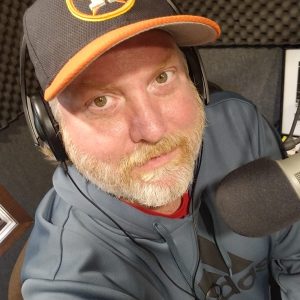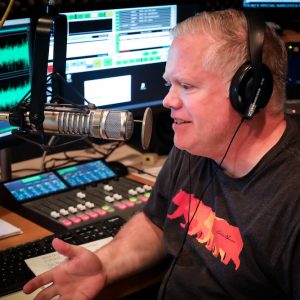More than 70 students recently came together to present their research and creative works at the first-ever inclusive excellence student showcase at Northwest College.
Following best practices of inclusion, eight University of Wyoming graduate and undergraduate researchers, along with two faculty members and a representative of the Innovation Wyrkshop and mobile makerspaces, traveled to N.W.C. on April 28 to engage with each student presenter. They asked questions, gave feedback, and offered to connect with every N.W.C. student as they worked to consider the next steps in their academic journey.
Moreover, each U.W. science graduate or undergraduate showcased the many appearances and identities of “a scientist.”
“Imagine multimodal displays of students’ scholastic passions thoughtfully organized such that two chemistry students and their professor showcased atomic absorption right next to a display in which a student from Colombia debunked myths about the stereotypes of Colombian women. From the room next door, the sounds of a ragtime piano performance can just be made out,” says Rachel Watson, co-program director of the Wyoming Inclusive Excellence effort, a program supported by a grant to U.W. from the Howard Hughes Medical Institute’s Science Education Program.
“The interdisciplinary and transdisciplinary emphasis of the student showcase was a purposeful design inspired by the knowledge that disciplinary boundaries form the silos of exclusion. Instead, the showcase aimed to value every type of scholarship, placing unlikely exhibits side by side. It showed value for every discipline, avoided disciplinary ‘othering’ and, in doing so, nurtured inclusion of all students.”
After a networking lunch, the U.W. researchers formed further connections with the N.W.C. students and faculty.
The showcase also was attended by community members, high school students, friends, and – in several cases – community partners who had worked with the students to make their authentic inquiry projects possible. For example, the owners of a local café provided an authentic business partnership for students doing an entrepreneurial design project.
“What stood out to me was the camaraderie between the N.W.C. students and faculty and the U.W. partners. We have planted a seed that can now germinate,” says Eric Atkinson, an Inclusive Excellence Leadership Team member and head of Biological Sciences at N.W.C. “Some very authentic steps were made. Now, we just need to sustain these relationships.”
“The level of scholarship by many of the N.W.C. students was truly inspiring. Their work was a credit to both themselves and the faculty advisers,” says Christi Boggs, a Wyoming Inclusive Excellence Leadership Team member focused on digital and inclusive teaching and learning, “I look forward to welcoming these students to U.W. in the future.”
“As a former attendee of Northwest College, it was inspirational for me to return and discover such a dynamic, varied, and flourishing community of student researchers at the conference,” says Jeremy Chappell, a U.W. engineering undergraduate student from Powell. “N.W.C. was a place where I experienced immense personal growth, and it filled me with joy to see the gifted faculty members persist in guiding new students toward their fullest potential, just as they did for me. I was overjoyed to see so many familiar faces and places again, and it’s truly heartening to witness the incredible progress and achievements made by the college community.”
Other participants praise the experience as well.
“I was struck by the enthusiasm of the N.W.C. student presenters — every person I interacted with was excited to share their research,” says Megan Szojka, a U.W. Ph.D. candidate in botany and the Program in Ecology and Evolution. “Further, through diverse presentation styles, the students showcased their transdisciplinary interests — for example, science communication — through graphic art.”
“I found the commitment of the students to their research to be out of this world. Learning that a good number of them were presenting a course’s final project was astonishing,” says Benjamin Romanjenko, a U.W. Ph.D. student in botany. “Their knowledge and ability to convey and discuss the concept from all angles really showed they owned the research material.”
Rebecca Austin, UW’s Innovation Wyrkshop makerspace coordinator, says the connections made with N.W.C. students and faculty were inspiring.
“At the Innovation Wyrkshop and mobile makerspaces, we believe in nurturing inclusion and valuing every type of maker from every background. We were thrilled to be a part of the inclusive excellence student showcase at Northwest College, where we witnessed the awe-inspiring display of celebrating the diversity of student research and creativity,” Austin says. “We look forward to seeing the seeds of this event germinate into sustained relationships and opportunities to provide resources that will benefit students for years to come.”
This showcase was envisioned, designed, and developed by educators committed to inclusive excellence. Over the past year, eight educators from N.W.C. and three from U.W. formed an inclusive excellence learning community. Within this community, the educators learned about inclusive teaching and research practices that best nurture all students.
The N.W.C. learning community started when Watson and several others from the U.W. Learning Actively Mentoring Program visited N.W.C. in the summer of 2022 and had an informal dinner the first evening, followed by an all-day session with about eight N.W.C. staff and faculty members at a local hotel. In the current academic year, the group has had one or two hourlong Zoom sessions per week, led by Watson, the principal investigator of the Wyoming Inclusive Excellence 3 (IE3) Initiative grant to U.W. from the Howard Hughes Medical Institute.
“Our discussions have centered on effective, inclusive pedagogy. We have discussed articles and excerpts from several books, including Eli Clare’s ‘Brilliant Imperfections,’” says Deepthi Amarasuriya, N.W.C. liaison for the Inclusive Excellence Leadership Team and Jones Family Endowed Chair for Science. “We also have had some special sessions, including a recent one on implicit bias conducted by Dr. Michelle Jarman of U.W. Several of our conversations have been on the theme of transdisciplinary research.”








